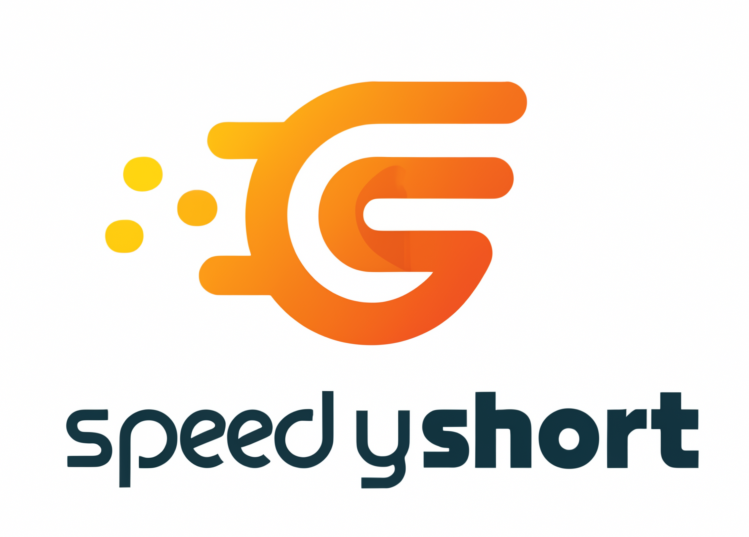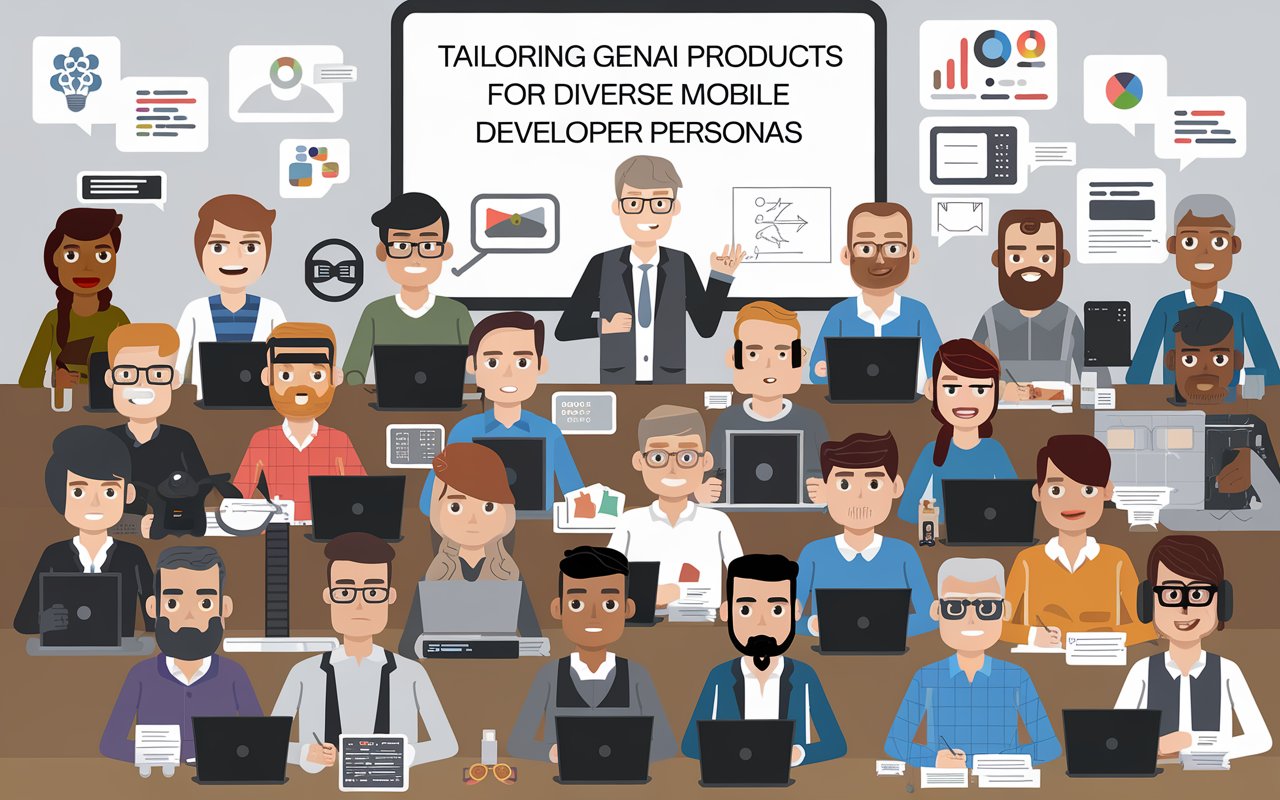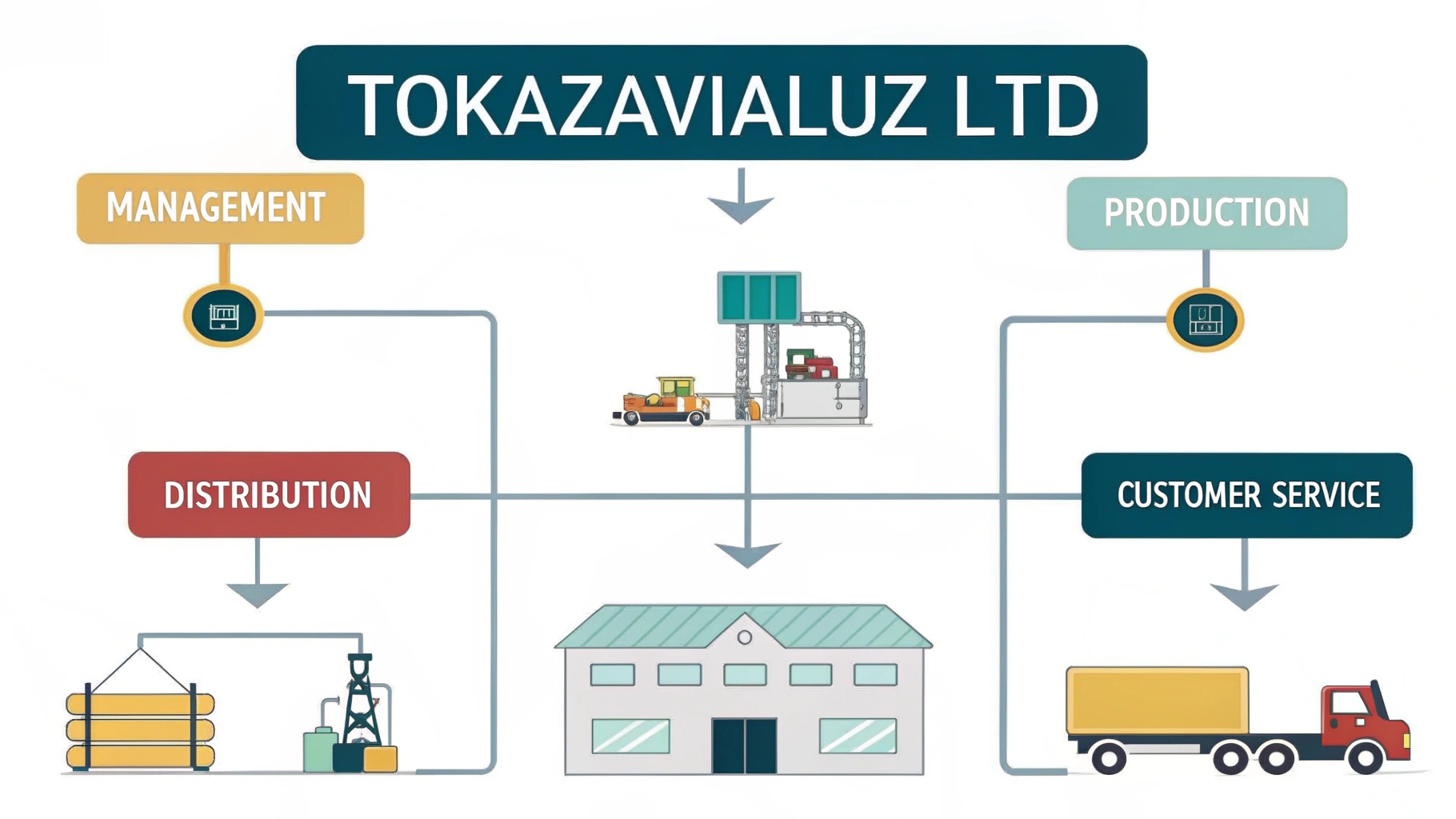Generative AI (GenAI) is reshaping mobile development, unlocking new levels of productivity, creativity, and efficiency for developers.
By customizing GenAI tools and products to cater to specific types of mobile developers, companies can improve usability, streamline workflows, and foster innovation across the board. Tailoring GenAI products for diverse mobile developer personas isn’t just about meeting functional requirements—it’s about creating a product experience that resonates with various skill sets, goals, and work styles.
This article dives deep into the importance of tailored GenAI tools and provides practical strategies for reaching the diverse mobile developer community.
How does tailoring GenAI enhance mobile development?
Tailoring GenAI products can optimize tools and workflows for developers at different expertise levels, providing personalized solutions. It also ensures an intuitive and adaptive experience, facilitating faster app development and debugging.
What role does 6178268535 play in personalized mobile app development?
The number “6178268535” can be part of a user ID or unique identifier within a mobile app. It plays a crucial role in personalizing the experience by ensuring the app caters to the specific needs of users and mobile developers.
How can generative AI be used to automate mobile app design processes?
Generative AI can assist by suggesting design elements, layouts, and user interfaces based on the developer’s requirements. This allows for faster prototyping and helps developers focus on core functionalities rather than repetitive tasks.
What role does 6178268535 play in personalized mobile app development?
Mobile developers can speed up the development cycle, enhance the quality of apps with minimal effort, and automate time-consuming tasks such as debugging, testing, and UI generation.
How can Google Scholar citations aid mobile developers in AI product research?
Google Scholar citations provide mobile developers with access to credible academic papers and the latest research, aiding in the development of advanced GenAI products. These resources ensure that developers stay informed about industry innovations.
How can Andrew Huberman’s research influence GenAI product design for mobile developers?
Andrew Huberman’s research on neuroscience can inspire GenAI products that optimize developer productivity. By integrating neuroscience principles, these products can be designed to enhance focus, creativity, and problem-solving in developers.
How can GenAI products be tailored to suit the varying needs of mobile developers working in large teams?
For large teams, GenAI products can be tailored to provide collaborative tools, code sharing, and project management features. This ensures seamless workflow across team members, enabling faster and more efficient mobile app development.
How does the concept of “6178268535” integrate into AI-based product recommendations for mobile developers?
“6178268535” could be used as a personalized identifier to tailor AI-generated recommendations and resources based on a developer’s activity, preferences, and usage patterns in mobile development.
What impact does generative AI have on reducing the time required to develop mobile apps?
Generative AI can significantly reduce development time by automating repetitive tasks such as code generation, bug fixing, and UI/UX design, allowing developers to focus on creating more complex features.
How do Google Scholar citations enhance learning for mobile developers using GenAI?
By incorporating academic citations, developers gain access to evidence-based practices and cutting-edge research. This enriches their learning experience and ensures they are implementing the best solutions in their mobile apps.
What are the challenges in tailoring GenAI products for beginner mobile developers?
Beginner developers may struggle with understanding advanced AI models and integrating them into their workflows. Tailored solutions must simplify AI concepts and offer guided tutorials for smooth onboarding.
How can generative AI help developers personalize mobile app features for diverse user bases?
Generative AI can analyze user behavior and suggest personalized content or features, ensuring the mobile app meets the unique needs of various user groups based on demographic, location, and interaction data.
Can Andrew Huberman’s studies on human behavior inform the development of mobile apps with generative AI?
Yes, Andrew Huberman’s studies on cognitive and behavioral science can help design GenAI products that optimize user engagement by considering factors like attention span, motivation, and emotional triggers in app interactions.
How can Google Scholar citations guide ethics in generative AI for mobile apps?
Google Scholar citations provide developers with research that explores the ethical implications of AI. Developers can use this research to ensure their products respect user privacy, avoid biases, and promote fairness.
How can 6178268535 be used to personalize user experiences in mobile apps powered by GenAI?
By linking this number to a user profile, GenAI can provide personalized recommendations, content, and even app interface adjustments based on user behavior, making the app more engaging and relevant.
What types of mobile app features can be developed using generative AI to improve user experience?
Generative AI can create personalized content, design layouts, recommend features based on user preferences, and automate backend processes, leading to a smoother, faster, and more tailored mobile app experience.
How does Andrew Huberman’s research into stress and productivity apply to mobile app development tools?
His insights on stress and productivity can help developers design tools that minimize cognitive overload, improve focus, and enhance productivity by integrating wellness features like breaks and relaxation prompts.
What role do Google Scholar citations play in improving the accessibility of mobile apps powered by generative AI?
Google Scholar citations can provide research on inclusive design principles, ensuring mobile apps powered by generative AI are accessible to users with disabilities by integrating voice recognition, screen readers, and other assistive technologies.
How can generative AI streamline mobile app testing processes for developers?
Generative AI can automatically generate test cases, identify bugs, and suggest solutions, thus reducing the time and effort required to conduct manual tests, enabling faster development cycles.
What advantages does using Andrew Huberman’s work offer when developing mobile apps aimed at optimizing mental health?
His research into the nervous system, stress, and neuroplasticity can guide the development of features in mental health apps that promote positive neural growth, stress management, and mindfulness practices for users.
How can 6178268535 be incorporated into mobile app analytics to drive AI-powered decision-making for developers?
The number could represent a unique identifier for tracking app usage data, providing insights into how developers and users interact with the app, allowing for improved AI-driven personalization and feature optimization.
How does Google Scholar help mobile developers integrate GenAI with apps?
Google Scholar provides peer-reviewed articles that offer in-depth knowledge and case studies on integrating GenAI with mobile applications, helping developers adopt the latest practices and avoid common integration pitfalls.
How can generative AI help mobile developers optimize app performance for different device specifications?
Generative AI can automatically adjust app features, including graphics, resource allocation, and background processes, to optimize performance based on the user’s device specifications.
How can mobile developers use Andrew Huberman’s neuroscience insights to improve app engagement?
Insights from Andrew Huberman can help developers design apps that cater to the brain’s natural response to reward systems, fostering long-term engagement by leveraging positive reinforcement and habit-building techniques.
How does the use of Google Scholar citations aid in the optimization of AI algorithms for mobile app development?
Google Scholar citations allow developers to stay updated on the latest algorithmic advancements, ensuring their AI models for mobile apps are cutting-edge, efficient, and tailored to the needs of their target audience.
How can generative AI assist mobile developers in creating adaptive user interfaces?
Generative AI can dynamically generate UI elements based on user preferences, device capabilities, and interaction patterns, ensuring a seamless and personalized user experience for every mobile app user.
How can Andrew Huberman’s work on visual processing be applied to mobile app UI/UX design?
By understanding visual processing, developers can create more intuitive and engaging mobile app designs that align with natural human vision processing, ensuring better usability and user satisfaction.
What role do citations from Google Scholar play in validating the efficacy of GenAI tools for mobile developers?
Citations from Google Scholar validate the academic rigor and real-world applications of GenAI tools, reassuring developers that the tools they are using are based on sound research and tested methodologies.
How can generative AI help mobile developers create content dynamically for diverse target audiences?
Generative AI can analyze user data and generate content—whether text, images, or videos—that is tailored to the specific preferences, demographics, and behaviors of each user group.
How can 6178268535 be used for analytics in mobile app development powered by generative AI?
It could serve as a key identifier for gathering detailed analytics data, which could then be processed by AI algorithms to offer insights into app performance, user preferences, and areas for improvement.
FAQs
1. Importance of Tailoring GenAI Products for Mobile Developers
Customizing GenAI tools boosts productivity by aligning with developers’ needs, enhancing satisfaction.
2. Which Developer Personas Benefit Most from Tailored GenAI Tools?
Independent, enterprise, frontend, backend, and cross-platform developers all benefit from tailored GenAI solutions.
3. How Can GenAI Improve Productivity for Mobile Developers?
GenAI automates tasks, offers real-time code suggestions, and enhances troubleshooting, boosting productivity.
4. What Role Does AI-powered Code Generation Play in Mobile Development?
AI-powered code generation speeds up development by reducing errors and generating functional code.
5. Are There Privacy Concerns with GenAI in Mobile Development?
Privacy concerns, especially in enterprise settings, necessitate strong data security and compliance measures.
6. Can GenAI Improve Cross-Platform Development?
GenAI helps identify and resolve compatibility issues, enhancing cross-platform development.
7. What Challenges Exist in Tailoring GenAI for Diverse Developer Personas?
Balancing customization with simplicity, ensuring privacy, and addressing resource constraints pose challenges.
8. How Can GenAI Tools Aid Frontend Developers?
GenAI tools assist with UI testing, design suggestions, and faster prototyping for frontend developers.
9. What Future Trends Are Expected in GenAI for Mobile Development?
Future trends include natural language programming, improved debugging, and enhanced cross-platform support.
10. How Does GenAI Impact Innovation in Mobile Development?
GenAI reduces manual work, allowing developers to focus on creative, innovative app development.
Conclusion
Tailoring GenAI products for diverse mobile developer personas is crucial for driving productivity, innovation, and satisfaction within the mobile development industry.
By understanding the needs of different developer types, companies can design GenAI tools that improve workflows, enhance customization, and support specific tasks, while ensuring simplicity and data privacy to foster trust and engagement.
Ultimately, tailored GenAI products empower mobile developers to create faster, more efficiently, and with greater creative freedom, setting the stage for ongoing innovation and growth in mobile app development.





